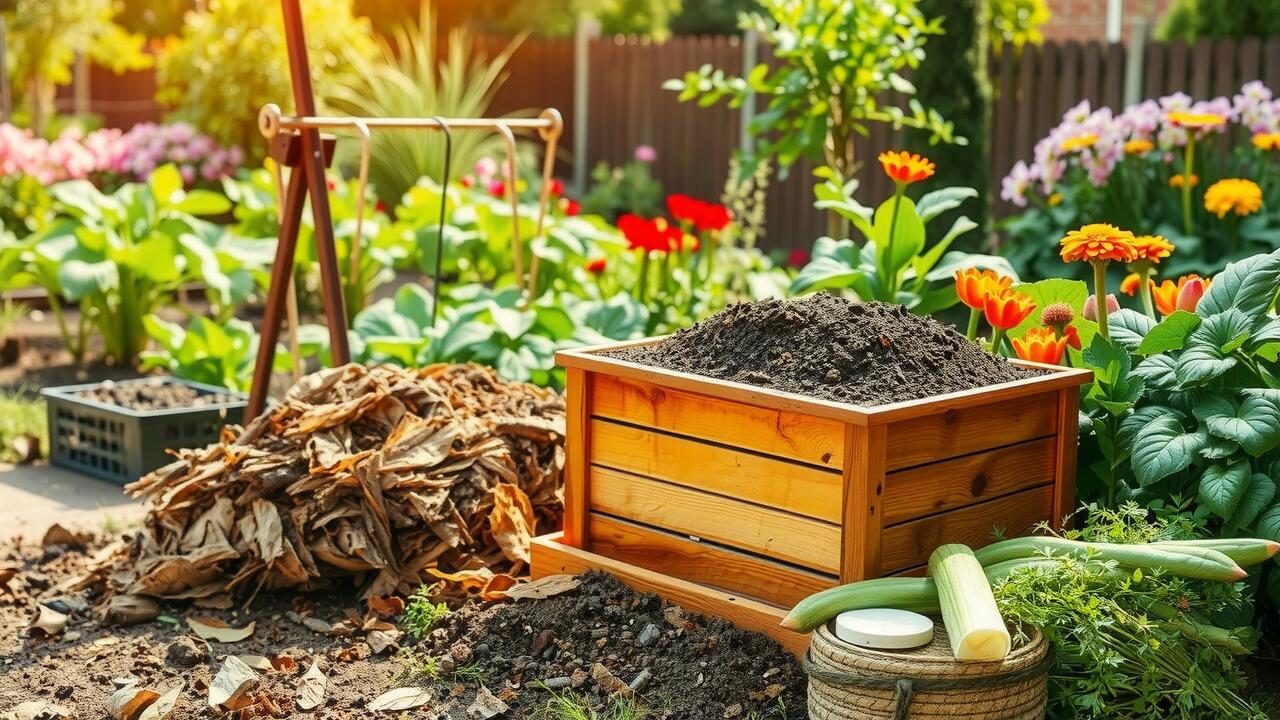Moisture Content in Compost
Maintaining the right moisture level is critical for the composting process. Ideally, the compost pile should have a moisture content similar to that of a wrung-out sponge. This balance allows microorganisms to thrive while breaking down organic material efficiently. Too little moisture can slow down the decomposition process, leading to a dry and ineffective compost pile. Conversely, excess water can create anaerobic conditions, producing foul odors and promoting the growth of unwanted pathogens.
To monitor moisture levels, regular checks should be incorporated into the compost management routine. Adding water or dry materials can help achieve the desired moisture balance. It’s also important to ensure the compost pile is not compacted, as proper aeration supports moisture distribution. Keeping these factors in check not only enhances decomposition but also contributes to the overall health of the compost mixture.
This new blog post covers this topic in more detail.
Maintaining Optimal Humidity Levels
Balancing moisture levels in compost is crucial for facilitating the decomposition process. Too little moisture can slow down microbial activity, while excessive water can create anaerobic conditions, leading to unpleasant odors and slower breakdown of organic materials. Aiming for a moisture content similar to that of a wrung-out sponge ensures an optimal environment for microorganisms to thrive.
Regular monitoring of moisture levels is necessary to achieve the right balance. Tools such as moisture meters can assist in determining the current humidity, making it easier to adjust as needed. If the compost appears too dry, adding water evenly throughout the pile can help. Conversely, if the compost is too wet, turning the pile and adding dry materials can help absorb excess moisture and promote proper aeration.
Temperature Management
Proper temperature management is crucial for effective composting. Compost piles undergo a natural process of decomposition that generates heat. This heat serves multiple purposes, primarily by killing pathogens and weed seeds while accelerating the breakdown of organic material. The ideal temperature range for a compost pile is typically between 130°F and 160°F. Maintaining this temperature ensures that microorganisms thrive and perform their roles efficiently, resulting in the creation of nutrient-rich compost.
Monitoring temperature fluctuations can provide insights into the composting process. If temperatures drop significantly, it may indicate insufficient microbial activity or a lack of essential materials. Conversely, excessively high temperatures can signal that the pile is too compacted, hindering airflow and thus the overall decomposition process. Regular turning of the compost pile not only aerates the materials but also helps to redistribute heat evenly throughout, promoting a balanced environment for decomposition.
The Heat Generation Process
During the composting process, microorganisms break down organic material, leading to the generation of heat. This decomposition occurs as bacteria, fungi, and other microorganisms consume nitrogen-rich greens and carbon-rich browns. The activity of these organisms results in exothermic reactions, where heat is released as a byproduct. The temperature of the compost pile can rise significantly, often reaching between 130°F to 160°F.
This increase in temperature is crucial for effective composting. Higher temperatures help to accelerate the breakdown of materials and effectively kill off pathogens, weed seeds, and pests that may be present in the raw organic matter. Maintaining an adequate temperature range is also necessary to support the activity of beneficial microorganisms, ensuring that the composting process remains efficient and productive.
Benefits of Composting
Composting offers a myriad of advantages that extend beyond waste reduction. It transforms organic materials into nutrient-rich soil amendments, enriching the earth and promoting healthier plant growth. This natural process not only reduces landfill waste but also mitigates methane emissions that could arise from decaying organic matter in landfills.
Utilizing compost in gardening and landscaping can lead to improved soil structure and increased water retention. It enhances microbial activity, fostering a vibrant ecosystem that supports plants. The nutrients released during decomposition provide a slow-release source for plants, reducing the need for chemical fertilizers and promoting sustainable gardening practices.
Enhancing Soil Health with Compost
Compost plays a crucial role in improving soil health by enhancing its structure and nutrient content. When added to garden beds or agricultural fields, compost promotes better aeration and water retention, making it easier for plant roots to grow. The organic matter in compost encourages the activity of beneficial microorganisms and earthworms, which further enrich the soil.
In addition to improving soil texture, compost provides essential nutrients that plants need for growth. These nutrients are released gradually, ensuring a steady supply over time. This slow release minimizes the risk of nutrient leaching and helps maintain balanced soil fertility. The diversity of organic materials in compost also contributes to a more robust ecosystem, which can lead to healthier, more resilient plants.
FAQS
What are the three necessary ingredients in compost?
The three necessary ingredients in compost are carbon-rich materials (browns), nitrogen-rich materials (greens), and moisture.
Why is moisture important in composting?
Moisture is crucial in composting because it helps to support the microbial activity needed to break down organic materials, ensuring that the composting process occurs efficiently.
How can I maintain optimal humidity levels in my compost?
You can maintain optimal humidity levels by regularly checking the moisture content, adding water when the compost is too dry, and mixing in dry materials if it becomes too wet.
What role does temperature play in the composting process?
Temperature plays a key role in the composting process as it affects the rate of decomposition; higher temperatures generally accelerate the breakdown of organic matter, while lower temperatures slow it down.
How does composting benefit soil health?
Composting enhances soil health by improving soil structure, adding essential nutrients, promoting beneficial microbial activity, and increasing water retention, all of which contribute to better plant growth.
